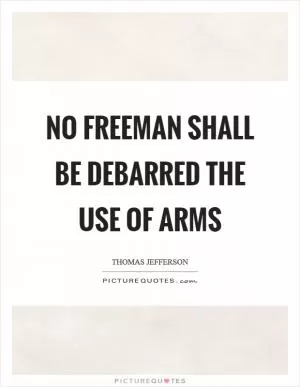The most successful war seldom pays for it's losses

The most successful war seldom pays for it's losses
Thomas Jefferson, the third President of the United States, was a firm believer in the idea that war should be avoided at all costs. He understood the devastating impact that war could have on a nation, both in terms of human lives lost and economic resources depleted. Jefferson famously said, "The most successful war seldom pays for its losses," highlighting his belief that the costs of war far outweigh any potential benefits.Throughout his presidency, Jefferson worked tirelessly to maintain peace and avoid conflict with other nations. He believed in diplomacy and negotiation as the best means of resolving disputes, rather than resorting to military force. Jefferson's approach to foreign policy was guided by his belief in the importance of maintaining a strong economy and preserving the well-being of the American people.
One of the most significant challenges Jefferson faced during his presidency was the conflict between the United States and the Barbary States of North Africa. The Barbary pirates were attacking American ships and holding American sailors for ransom, posing a threat to American trade and commerce. Rather than immediately resorting to war, Jefferson sought to negotiate with the Barbary States and find a peaceful resolution to the conflict.
Jefferson's efforts eventually led to the signing of the Treaty of Tripoli in 1805, which ended the conflict with the Barbary States and secured the release of American prisoners. By avoiding war and pursuing diplomacy, Jefferson was able to protect American interests and avoid the devastating costs of a prolonged military conflict.












 Friendship Quotes
Friendship Quotes Love Quotes
Love Quotes Life Quotes
Life Quotes Funny Quotes
Funny Quotes Motivational Quotes
Motivational Quotes Inspirational Quotes
Inspirational Quotes